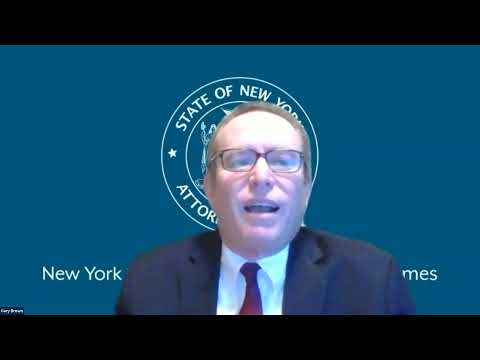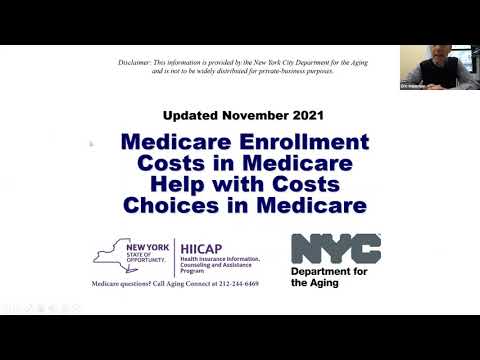
Sen. Krueger and Bill Samuels: Fund Campaign Reform with Casino Cash
Liz Krueger
January 7, 2013
-
ISSUE:
- Elections
- Campaign Finance
Two days ahead of Governor Andrew Cuomo’s State of the State address, New York State Senator Liz Krueger and reform advocate Bill Samuels announced a new campaign finance reform proposal: a grand bargain that can accomplish Governor Cuomo’s previously-stated goal of a true “fair elections” matching-funds system, without running afoul of some legislators’ objections to taxpayer funding of elections.
In a press conference at the state capitol, Krueger and Samuels challenged Gov. Cuomo and the state legislature to implement full campaign finance reform, including a small-donation matching-funds system, by taking advantage of the high-profile push for controlled legalization of casino gaming in New York State.
While adopting a version of the New York City public campaign financing system at the state level would only cost about $3-4 per taxpayer, the relatively modest proposed cost still meets with opposition in Albany from some like Senate Republican leader Dean Skelos, who recently said he is “skeptical” of using taxpayer money for elections during a time of fiscal crisis.
The proposal Krueger and Samuels are backing would address the concerns of both fiscal hawks and legislators skittish about use of taxpayer money: the funds generated from casino gaming licenses would provide a stable, non-tax revenue stream to fund fair elections in New York State.
Following their announcement, Bill Samuels’ New Roosevelt Initiative publicly released a white paper titled “Campaign Finance Reform: The #1 Reform Priority for Albany in 2013,” which includes a full explanation and analysis of how casino gambling proceeds could fund elections, and how a New York City-style public financing system would work at the state level.
Sen. Liz Krueger said: “Where casino gaming interests in other states have become a force for some of the darkest excesses of post-Citizens United politics, with characters like Sheldon Adelson spending millions to buy elections, New York can chart a different way forward. This unique, counterintuitive opportunity is a way forward on government reform that Governor Cuomo and my fellow legislators cannot ignore.”
New Roosevelt's Bill Samuels said: “In the coming fight for campaign finance reform, will we see the governor who led and invested political capital on marriage equality, or will it be the governor who strung people along on redistricting reform and ultimately signed an ill-conceived constitutional amendment proposed by Albany Republicans?”
How It Would Work
The casino gambling proposal would generate two new revenue sources: (1) the annual adjusted gross revenue (AGR) sharing between casinos and the State of New York; and, (2) an annual operating license fee per casino.
As it stands, the proposed constitutional amendment on casino gambling in Albany does not identify any specific earmark for either of these two revenue streams.
Sen. Krueger and Bill Samuels’ proposal would direct the state’s share of gaming revenues to education, as is currently done with state lottery revenues, and direct that the annual license fees be used to fund a fair elections system.
(1) Annual Sales Revenue (After Prizes but Before Cost, a.k.a. AGR) Sharing From Casinos – $250 Million to $1 Billion to Fund Education
Revenue sharing in other states is normally based on a percentage of adjusted gross receipts (AGR) of casinos, defined as the wagering receipts after winnings are paid out but prior to the casino’s operating expenses. Casinos in New Jersey, where the rate is 8%,[1] generate over $250 million annually in revenue for the state.[2] In Illinois, where the rate is 50%, $489 million is generated annually.[3]
(2) An Annual Operating License Fee Per Casino – $56 Million a Year to “Get Money Out of Politics”
Sen. Krueger and Bill Samuels’ proposal would use licensing fees of approximately $8 million a year from each of the seven casinos authorized under the constitutional amendment. Once up and running, this would cover the cost of a full “fair elections” campaign finance system with matching funds for small donations from citizens, which experts have projected to be $224 million per four-year election cycle.
“The time is now for Governor Cuomo and lawmakers to make good on what they failed to do last time – pass real campaign finance reform and get money out of politics in this state for good,” said Samuels. “It is at the heart of so many problems in Albany, and if Governor Cuomo puts forward the type of leadership he used to get Marriage Equality passed, we could set an example for the rest of the country. The real question, though, is which Cuomo will show up on this issue. His State of the State speech might reveal which Governor will appear on this issue.”
“There will be tremendous pressure to pass the casino gambling amendment in this coming legislative session so it can go on the ballot in November, and we can harness that pressure to deliver New Yorkers the reform they deserve,” said Sen. Krueger. “The licensing fees we propose will be a small cost of doing business for the casino operators, but they will have an enormous impact – fueling a better election system that will give New Yorkers a better government that makes better decisions.”
“Campaign finance reform is at the heart of changing a state legislature that seems to be driven by four- and five-figure checks from special interests,” concluded Samuels. “Getting money out of politics will usher in a new era where legislators can focus on the needs of the people they represent, and enable the election of a new generation of reform-minded individuals who, like Franklin Delano Roosevelt, see public service as a noble profession and not as a way to accumulate power and dole out favors to campaign contributors.”
=====
[1] Christie, Chris. "NJ Division of Taxation - New Legislation for 2011." NJ Division of Taxation - New Legislation for 2011. New Jersey Department of State, 9 Aug. 2012. Web. <http://www.state.nj.us/treasury/taxation/newlegislation2011.shtml>.
[2] "New Jersey Casino Revenue Fund Advisory Commission." http://www.nj.gov/casinorevenue/reports/crfacannrpt2011.pdf. New Jersey, June 2011. Web.
[3] Nurin, Tara. "Betting on the Future of Gambling in New JerseyRacinos, Pop-up Casinos, Sports Betting, Internet Action, and Mobile Apps -- Gaming in the Garden State Could Wind up Meaning Much More than Atlantic City." Betting on the Future of Gambling in New Jersey. New Jersey Spotlight, 6 Aug. 2012. Web. <http://www.njspotlight.com/stories/12/0805/1930/>.
# # #
Share this Article or Press Release
Newsroom
Go to Newsroom

Medicare Parts A, B, C and D: Changes You Can Make to Your Coverage
November 23, 2021

Senator Krueger 2021 Veteran Hall of Fame
November 11, 2021
